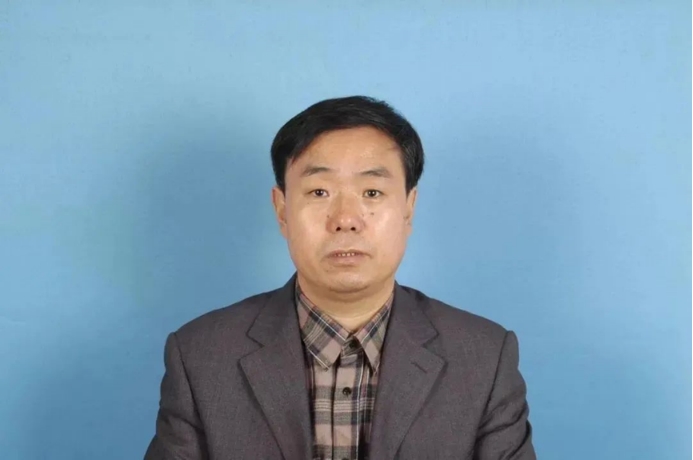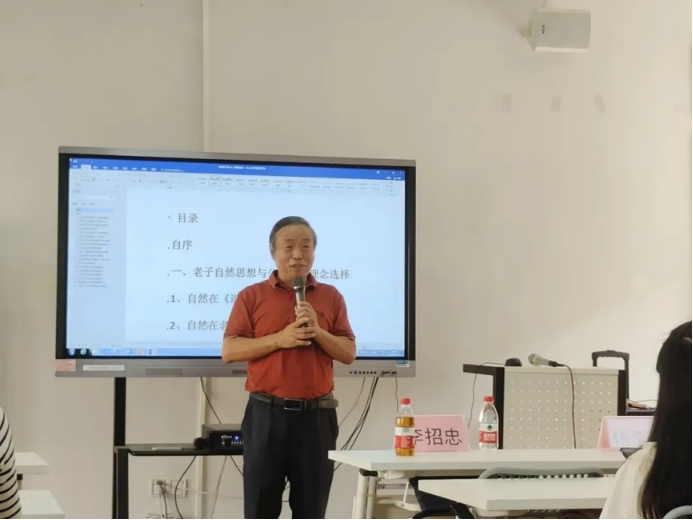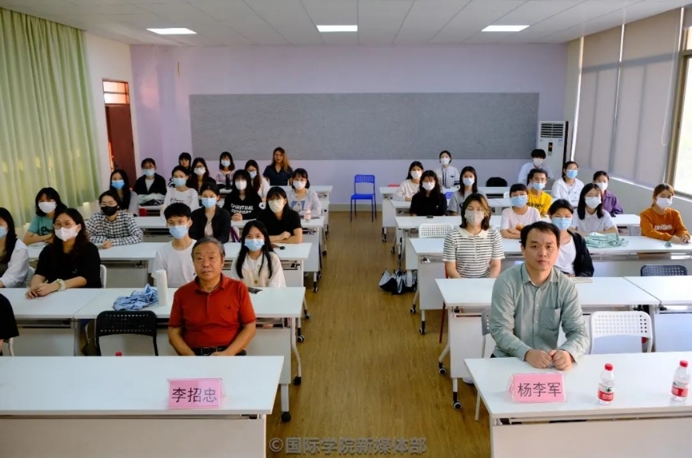Lecture Review | Professor Li Zhaozhong‘s Lecture on
Desireless thought of Lao Zi
On November 29th, Professor Li Zhaozhong, Dean of the School of Management, Guangzhou Huashang College, was invited to lecture on Desireless thought of Lao Zi. He led us to explore Lao Zi's aspired thought and the moral cultivation of contemporary Chinese public managers.

Li Zhaozhong, Dean of the School of Management, Guangzhou Huashang College, and Professor of the Department of Administrative Management, School of Public Administration, Jinan University, part-time researcher of Guangdong Research Base in Hong Kong, Macao and Overseas. He has served as master's supervisor of administrative management and MPA degree. He is a member of the Guangdong Provincial Political Consultative Conference, a member of the Party Committee of Jinan University, and head of the Party Committee's United Front Department and so on. He has published more than 60 papers in journals.

The lecture began after Li Pinghai, the Vice Dean of the International School, introduced Professor Li Zhaozhong's academic achievements. First, Professor Li Zhaozhong pointed out that today's world is a "materialistic world" and a generally utilitarian society. People are often tempted by materialistic desires, especially those who hold public power. Professor Li hoped to have a dialogue about human desire of Lao Zi more than 2,000 years ago across time and space, and explore whether Lao Zi's thoughts of desireless have some value for the moral cultivation of contemporary Chinese.
Secondly, Professor Li briefly summarized the view of desire of pre-Qin philosophers such as Confucius, Mencius, Xunzi, Mozi and Zhu Zi, and analyzed the historical background of the emergence of Lao Zi's desireless thought in Tao Te Ching, which proposes that Lao Zi recognizes human's natural and necessary desires. On this basis, it can enlighten contemporary Chinese public governance: firstly, whether the desire can be controlled well is a severe political test for administrators; Secondly, abstinence should be the conscious practice of every public administrator. Third, abstinence is to return to the original simplicity of human nature.
Later, there are many discussions in the interactive session, such as "What reference significance does Lao Zi's thought have for daily individual behavior", "Will Lao Zi's thought become the main of the society in the future", "How should people balance their mentality in today's society with such impetuosity" and other relevant questions; Professor Li responded carefully to the students.


Finally, Professor Li quoted Sima Qian's famous saying to conclude. And he told us the best way for a person is to have both virtue and ability. If you can't do both, you should have more virtue

At this point, the lecture of International School has come to a successful conclusion.
(Photos/Words from International School)